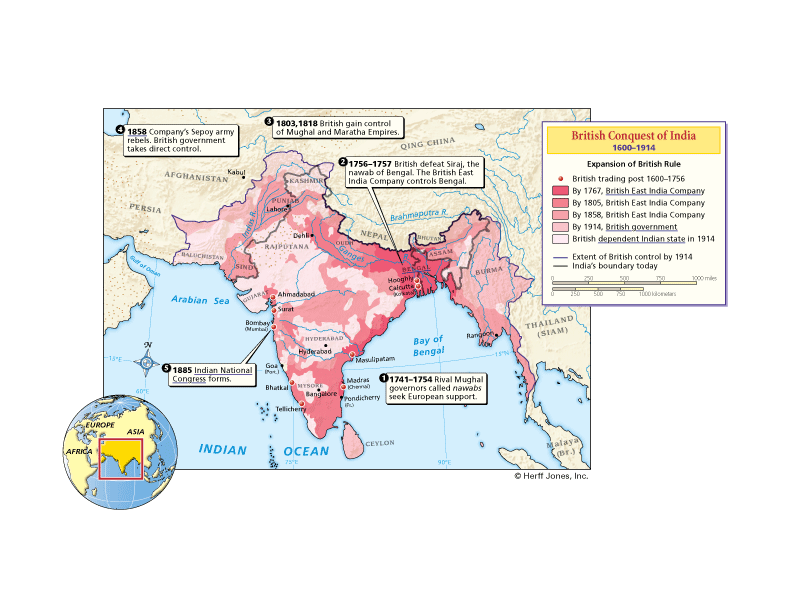
The East India Company was given a monopoly on trade between Britain and Asia. The British Parliament also gave the company the ability to sign treaties and declare war. Using bribes, alliances, and war, the East India Company taxed, collected rent, and controlled the foreign policy of Indian kingdoms, and replaced leaders who resisted them.
After 1858, Parliament took direct control of India and declared the queen "Empress of India." The British government ruled India until 1947.
The British introduced a new rifle with bullets packed in grease. The bullets needed to be bitten before being used. Muslims believed the grease contained pig fat and Hindus believed it contained cow fat. Thousands of Indian soldiers rebelled and gained the support of several Indian monarchs. Eventually the British, combined with Indian allies, defeated the rebellion.
The British established alliances with local leaders. Under the alliance, the British stationed troops in the kingdom, controlled its foreign policy, and received land or money to support their troops. The local prince continued to rule under British supervision. The princes maintained their rule until 1947.
When the East India Company fortified Calcutta without informing the nawab, he attacked and imprisoned British in a windowless prison called "the Black Hole of Calcutta." Several died. The company bribed key leaders to desert the nawab.
The Indian National Congress was formed to improve India through political reform. Unlike earlier movements, the Congress was led by British-educated professionals, rather than soldiers or traditional rulers. Eventually it became the main organization for Indian independence. It continues today as India's Congress Party.